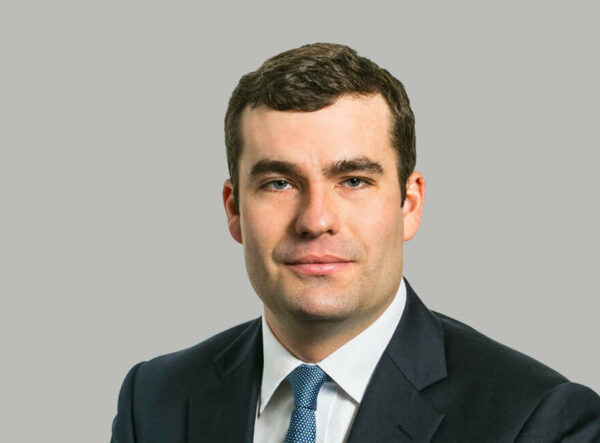Application to adduce expert evidence on music streaming in 2005 refused (Declan Colgan Music Limited v UMG Recordings Inc)

An application by a Claimant to litigation concerning a licensing agreement for the sampling of a music track to adduce expert evidence in relation to commercial details of music streaming services in 2005 has been refused. The costs associated with such expert evidence were disproportionate to the anticipated assistance it would give to the Court.
Declan Colgan Music Limited v UMG Recordings Inc [2023] EWHC 4 (Ch)
What are the practical implications of this case?
This is an interesting decision on the test to be applied when an application is made to adduce expert evidence at an early stage of proceedings. The decision emphasises the need for the Court to examine carefully the questions which the expert is being asked to answer, whether those are questions of fact or opinion and the extent to which those questions assist the Court to resolve the dispute between the parties. At an early stage and without access to the expert report itself, it may be difficult properly to assess the extent to which the evidence is relevant and admissible. The decision further highlights the need for the Court to weigh the probative value of the evidence sought to be adduced against the costs associated with that evidence. Where those costs are held to be disproportionate, it is appropriate to refuse an application, particularly at an early stage in the litigation.
What was the background?
The Claimant is the licensee of the worldwide sound recording copyrights of the song, 21st Century Schizoid Man (the “Recording”). In 2010, Kanye West recorded the track, Power, which included a sample of the Recording. A licence agreement was entered between the Claimant and the Defendant (“UMG”) which was then entitled to the exclusive recording services of Kanye West. Under the terms of that licence agreement, royalties were to be paid by UMG to the Claimant for the use of the Recording. A dispute arose as to whether UMG had properly accounted to the Claimant in respect of those royalties. There was a particular issue in relation to the royalties payable in the event that Kanye West’s track, Power was downloaded. The Claimant sought to adduce expert evidence in relation to the digital consumption of music. Specifically, (1) the extent to which there was a commercial market for the licensing or consumption of recorded music through streaming in 2005, and (2) the nature of the services offered in 2005 by way of streaming services to consumers and the extent to which (i) exploitation of a recording via a streaming service or platform is of a different nature to exploitation of a recording via CD and (ii) the price of usage of a recording via a streaming service is lower than the price of usage of a CD (and why).
What did the court decide?
The application was refused. The Court analysed the various issues about which the Claimant sought to obtain expert evidence and the nature of those issues. First, the extent to which there was a commercial market for the licensing or consumption of recorded music by streaming in 2005. This was an issue of fact and it was quite possible that no lay witness would be able to give evidence which covered all the possible ground. Second, the nature of the streaming services offered in 2005 by streaming services to consumers. This too was an issue of fact which also might fall outside the scope of any single lay witness. Third, the extent to which the exploitation of a recording by a streaming service or platform and via the sale of a CD in 2005 were of a different nature. These were issues of secondary fact or characterisation once identified. Fourth, the differences in pricing of streaming and CDs in 2005 was an issue of fact but with a very wide scope and likely to be beyond the scope of any lay witness. Finally, the reasons for any differences in prices. This was a blend of fact and opinion. In determining the application, the Court applied a test with three overlapping parts. First, whether the evidence is admissible in accordance with the rules of evidence. Second, whether, even if admissible, the evidence is expert evidence within the meaning of CPR, Part 35. Finally, whether the evidence is reasonably required to resolve the proceedings. Overall, the Court was not satisfied that all parts of the evidence sought to be adduced met each of the requirements of the test. In any event, the anticipated costs of the expert evidence was disproportionate to the extent to which that expert evidence might be expected to assist the Court. Consequently, permission was not given to rely on expert evidence.
Case details
- Court: High Court of Justice, Business and Property Courts, Business List (ChD)
- Judge: Deputy Master Henderson
- Date of judgment: 5 January 2023
Article by Phillip Patterson – first published by LexisNexis
Disclaimer
This content is provided free of charge for information purposes only. It does not constitute legal advice and should not be relied on as such. No responsibility for the accuracy and/or correctness of the information and commentary set out in the article, or for any consequences of relying on it, is assumed or accepted by any member of Chambers or by Chambers as a whole.
Contact
Please note that we do not give legal advice on individual cases which may relate to this content other than by way of formal instruction of a member of Gatehouse Chambers. However, if you have any other queries about this content please contact:


